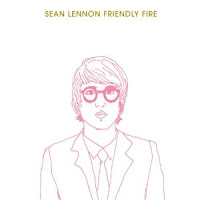Once I caught wind of Barrett, I became insanely curious about his musical prowess, but at the time, a lot of mainstream stores did not carry his solo stuff. In cases like this, I could always count on my favorite record hangout at the time, a long-defunct store called Compact Discs of Austin. CDs of Austin stocked a cornucopia of imported and rare albums and, most importantly, if I ate in my car, it was within driving distance of my high school during the glory days of open lunch.
 So I picked up Barrett, but when I got it home, I genuinely did not see what all the fuss was about. The album's almost quaint and sometimes meandering style bore little resemblance to the grandiose Pink Floyd that I knew. Superficially, Gilmour certainly seemed to be a much superior guitarist and vocalist At the time, I concluded that Barrett’s biggest contribution to the band, aside from being an admittedly important character in its foundation, was to provide inspiration for Roger Waters' dark and perhaps exploitative lyrics for the next twenty years.
So I picked up Barrett, but when I got it home, I genuinely did not see what all the fuss was about. The album's almost quaint and sometimes meandering style bore little resemblance to the grandiose Pink Floyd that I knew. Superficially, Gilmour certainly seemed to be a much superior guitarist and vocalist At the time, I concluded that Barrett’s biggest contribution to the band, aside from being an admittedly important character in its foundation, was to provide inspiration for Roger Waters' dark and perhaps exploitative lyrics for the next twenty years. Admittedly, I was not swept up into Barrett's rise to fame when it crested, so I’m not sure I will ever really understand the hoopla around him. With Pink Floyd flashing back into recent public consciousness, however, the story of the band is being recounted with increasing regularity. It’s impossible to ignore his looming spectre. To stave off my compulsive desire to add more missing pieces of Pink Floyd's early catalog to my collection, I decided to revisit Barrett during Thanksgiving vacation.
 |
| One of many sights on our beachcombing safari. |
Barrett sounds much different to me as a new parent taking an introspective walk on a beach in November than it did to a me as delusional and naïve high school student. It was much more intimate than I remembered, and Barrett does show glimmers of fancifully obtuse genius. Check out the impish guitar intro to Baby Lemonade.
I also noticed that there are some tracks from Barrett that share a distinct vibe with earlier Pink Floyd, particularly Dominoes.
But according to the accounts of its recording, it’s no wonder. Recorded in 1970, its sessions run concurrently with Atom Heart Mother, and for all intents and purposes, Gilmour and Wright should probably share some writing credits. They “helped” Barrett get his album done, and perhaps many of the uncanny twists and turns that the songs often take are an effort to reign in and capture Barrett’s stream of consciousness.
That was, however, a different time, when the legal implications of songwriting and collaboration were a bit more naïve. Regardless of the process that created them, Barrett features some truly unique and affecting songs.
Ultimately, Barrett’s Floyd was not really the one that I know and love, although now, in reflection, I shouldn't underestimate his influence on the group Barrett's most important contributions to Pink Floyd mostly occurred before the band's debut, and lay at their very foundation. They are also, unfortunately, lost to history. Doubtlessly Pink Floyd would have been a profoundly different band had he kept it together, and his solo work provides a hint at what it might have sounded like. On the other hand, Barrett also has its own merits if it is accepted on its own terms.
















